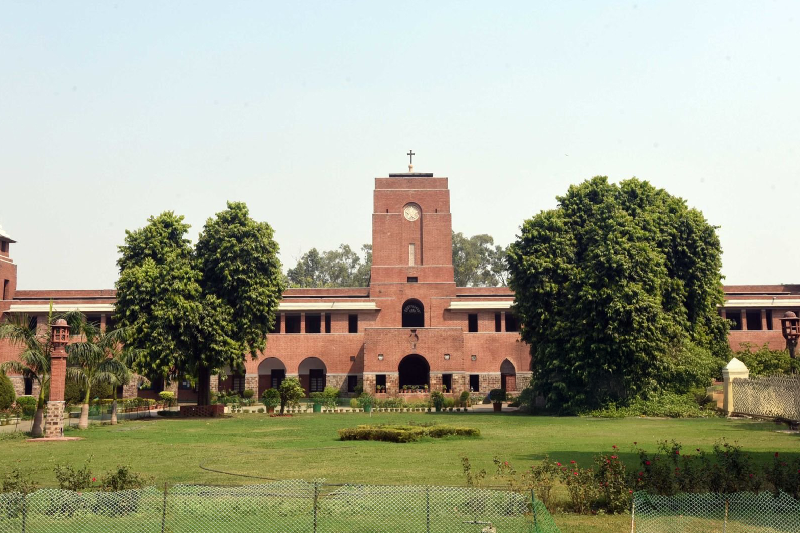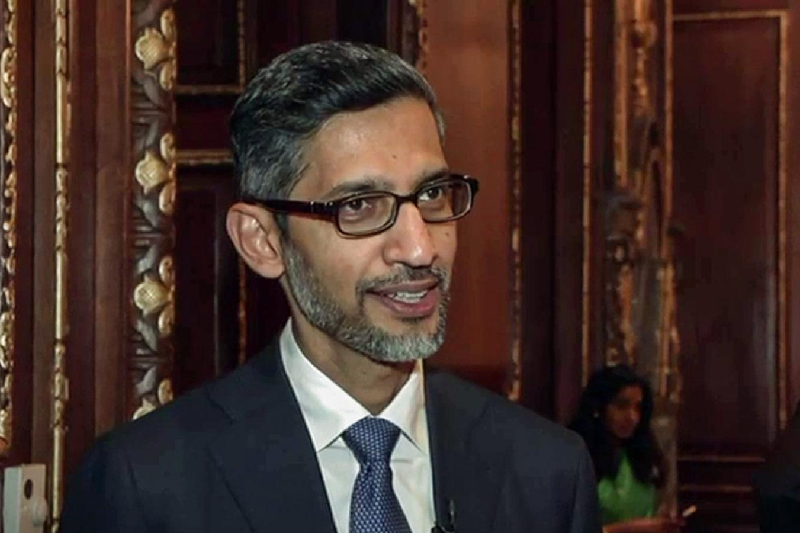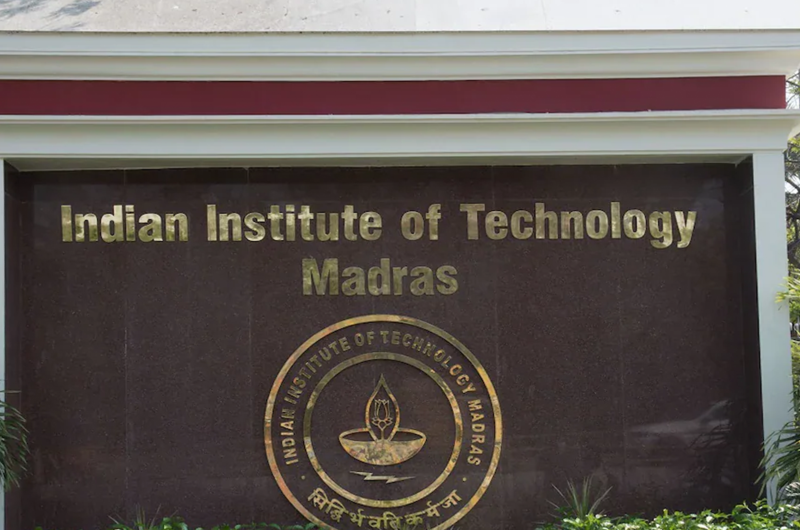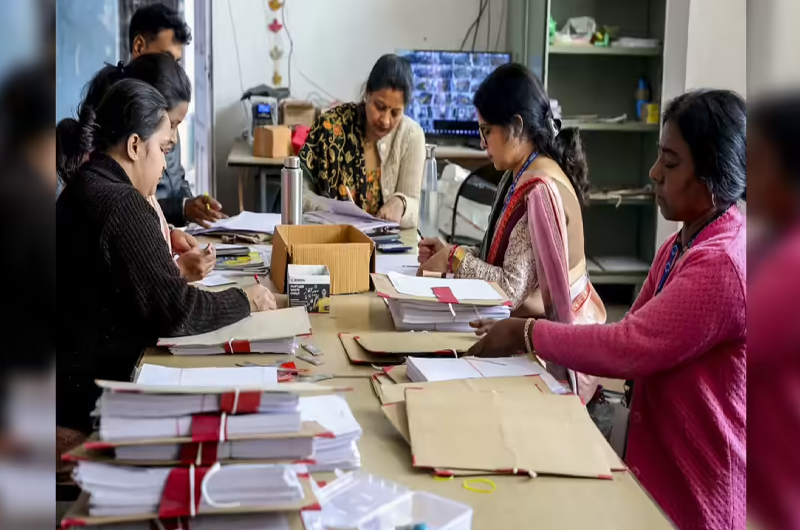
DU’s Bold Academic Overhaul: Curriculum Shake-Up, UG Fourth Year Rollout & Major Infrastructure Boost
In a significant move reflecting ambition and controversy, Delhi University’s Executive Council approved several sweeping academic and infrastructural proposals on Saturday. The meeting, chaired by Vice Chancellor Professor Yogesh Singh, marked a pivotal moment in the university’s transition under the National Education Policy (NEP) 2020.
One of the most contentious decisions was ratifying the changes in the postgraduate Political Science syllabus. Notably, papers on Pakistan, Islam, and China have been removed, triggering intense debate within the Academic Council earlier in June. Executive Council member Mithuraaj Dhusiya criticized the syllabus revisions, claiming procedural irregularities. He claimed that certain courses were altered significantly before reaching the Academic Council, undermining due academic process and transparency.
Despite these concerns, the Council pushed forward with the changes, signifying a determined shift in the university’s academic direction.
NEP Implementation: DU Gears Up for Undergraduate Fourth Year
Among the most anticipated announcements was the confirmation that Delhi University is fully prepared to implement the fourth year of undergraduate studies from the 2025–26 academic session. This extension aligns with the NEP 2020 and is expected to be taken up by over 60 percent of the undergraduate student body.
Addressing apprehensions about faculty shortages for the upcoming academic expansion, Professor Singh assured that only regular, full-time teachers would conduct classes for the fourth year. Guest faculty may support teaching at junior levels, but will not be responsible for the critical final-year coursework. He further noted that regular faculty members may take on additional teaching responsibilities and receive suitable compensation for teaching and non-teaching duties.
Professor Rajni Abbi Appointed Director of South Campus
The Executive Council also announced the appointment of Professor Rajni Abbi as the new director of Delhi University’s South Campus. A respected academic, Professor Abbi brings years of administrative and scholarly experience, adding further leadership depth as the university undergoes systemic change.
Massive Digital Upgrade and Startup Push
The university has significantly upgraded its digital infrastructure in alignment with its modernization drive. According to the vice chancellor, Wi-Fi connectivity has been enhanced across campuses at a cost of ₹65.71 crore. The university library has been fully digitised, giving students 24/7 access to over two lakh e-books and journals.
The university also aims to foster innovation and entrepreneurship. VC Singh urged college principals to set up startup incubators and register Section-8 companies to empower students with entrepreneurial ambitions and provide institutional support for new ventures.
₹1,912 Crore Infrastructure Projects Underway
Delhi University is currently undertaking 17 infrastructure projects valued at approximately ₹1,912.15 crore, with ₹329 crore already released for execution. These projects include constructing a new WUS Health Centre and a computer centre on North Campus, the vertical expansion of the science block, and enhancing the Social Centre School Building in Maurice Nagar.
The South Campus is also witnessing new developments, including a Cultural Activity Centre near Shankar Lal Hall and an academic building at the SP Jain parking site. In response to rising demand for student accommodation, the university has approved new hostels for girl students and working women at the Dhaka campus. Additionally, expansions to South Campus hostels in boys’ and girls’ hostels are planned.
Following reports of structural damage at buildings in the Dhaka campus in Mukherjee Nagar, the Central Public Works Department (CPWD) has initiated a structural audit. Based on the audit’s findings, phased reconstruction and retrofitting will be carried out to ensure the safety of students and residents.
Focus on Renewable Energy and Sustainability
Pushing forward with its green initiatives, the Executive Council approved installing solar power plants on both North and South campuses under the Renewable Energy Service Company (RESCO) model. This will be implemented with the Solar Energy Corporation of India (SECI) and aligned with the university’s operational protocols.
Commemorative Proposals and Scholarships
Recognizing notable figures, the Council has proposed developing the Dr. B.R. Ambedkar Udyan within the Faculty of Social Sciences and renaming an auditorium in his honour. Additionally, a committee has been formed to explore establishing a sports scholarship in the name of late Union Minister and Delhi University alumnus Arun Jaitley.
DU Climbs Global Rankings, Earns Recognition in Employability
Capping off the announcements, Vice Chancellor Singh highlighted DU’s performance in the QS World University Rankings 2026. The university has climbed 14 spots to reach 30th globally in employment outcomes — a testament to the growing relevance of DU graduates in the global job market. Overall, Delhi University is now ranked seventh among Indian institutions, holding the 328th position globally.
With bold academic reforms, robust infrastructure growth, and a clear roadmap for NEP implementation, Delhi University is repositioning itself as a forward-looking institution — even as it grapples with internal dissent and complex transitions. The coming academic year promises to be both challenging and transformative.



